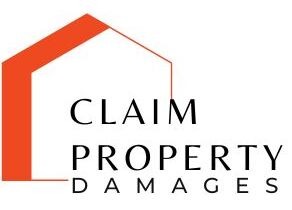10 Secret Tactics Home Insurance Claim Adjusters Don’t Want You to Know
Dealing with a home insurance claim adjuster can be a daunting process, especially after your home has been damaged. Many homeowners are unaware of the strategies that adjusters might use to minimize payouts, leaving you with less compensation than you deserve. Knowing these home insurance claim adjuster secret tactics can empower you to better navigate the claims process and maximize your settlement.
In this article, we’ll uncover the 10 secret tactics adjusters often use and provide actionable tips on how to counter them.
1. Delaying the Claims Process
One of the most common home insurance claim adjuster secret tactics is delaying the claims process. Adjusters may slow down their response times or ask for excessive documentation to drag out the process, hoping homeowners will give up or settle for less than they’re owed.
How to Counter This:
- Document Every Interaction: Keep detailed notes of every call, email, and meeting with your adjuster. This creates a record of their responses and timelines, which you can use to follow up and hold them accountable.
- Stay Persistent: Don’t be afraid to contact your adjuster regularly to check the status of your claim. Politely push for faster resolution by referencing the documentation of your previous interactions.
2. Offering a Lowball Settlement
Adjusters may offer a low initial settlement, hoping that homeowners, desperate for funds, will accept it without question. This tactic can save the insurance company money at your expense.
How to Counter This:
- Get Multiple Estimates: Before accepting any offer, get quotes from licensed contractors for the repairs. Compare these estimates with the adjuster’s offer to ensure it covers the actual cost of repairs.
- Negotiate: If the initial offer is too low, provide evidence of the actual costs and negotiate for a fair payout. You don’t have to accept the first offer presented.

3. Misinterpreting Policy Terms
Another tactic adjusters use is misinterpreting or selectively reading your insurance policy to exclude or minimize coverage. This can happen if the adjuster claims certain damages are not covered when, in fact, they are.
How to Counter This:
- Review Your Policy: Thoroughly read your insurance policy to understand what is covered and what isn’t. Don’t rely solely on the adjuster’s interpretation.
- Consult an Expert: If you’re unsure about your policy’s terms, consider consulting a property claims adjuster or insurance attorney to help you navigate complex language and avoid being misled.
For more help with this process, you can visit Property Claims Adjuster.
4. Downplaying the Extent of the Damage
Adjusters may minimize the severity of the damage to justify a lower payout. For example, they might claim that only part of the roof needs repair when the entire roof was compromised.
How to Counter This:
- Get a Professional Inspection: Hire a licensed contractor or a public adjuster to inspect your property and provide a detailed report of the damage. This can serve as evidence to counter the adjuster’s assessment.
- Provide Photographic Evidence: Before any repairs are made, take extensive photos and videos of the damage from different angles. This documentation can support your claim for a higher payout.
5. Using Technical Jargon to Confuse Homeowners
Some home insurance claim adjusters might use technical jargon or insurance language to confuse homeowners and discourage them from pursuing a higher settlement.
How to Counter This:
- Ask for Clarification: Don’t be afraid to ask the adjuster to explain any terms or processes you don’t understand. It’s important to fully grasp what you’re agreeing to.
- Do Your Research: Take the time to research insurance terms or consult with a public adjuster who can help you navigate the process.
For more support, visit South Florida Insurance Adjuster.
6. Requiring Excessive Documentation
While documentation is essential for filing a claim, some adjusters may ask for unnecessary or redundant paperwork to create hurdles. This tactic delays the process and can frustrate homeowners into settling for less.
How to Counter This:
- Stay Organized: Keep all your receipts, contracts, and documents related to the claim in one place. If the adjuster asks for something you’ve already provided, politely remind them and resend the information.
- Request a Written Explanation: If the adjuster keeps asking for additional documentation, ask them to provide a written explanation for why it’s needed. This can deter unreasonable requests.
7. Pushing for a Quick Settlement
Insurance adjusters may pressure you to settle quickly, especially before you’ve had time to assess the full extent of the damage. This tactic benefits the insurance company, as it prevents you from seeking a larger payout later.
How to Counter This:
- Take Your Time: Don’t rush into accepting a settlement. Take the time to fully assess the damage and gather multiple repair estimates. You have the right to a fair settlement, even if it takes time to reach.
- Consult a Public Adjuster: If you feel pressured, a public adjuster can help guide you through the process and ensure you don’t settle for less than you’re owed.
8. Denying Legitimate Claims
In some cases, adjusters may deny valid claims outright, citing exclusions or loopholes that don’t actually apply. This is one of the most frustrating home insurance claim adjuster secret tactics.
How to Counter This:
- Challenge the Denial: If your claim is denied, ask the adjuster for a detailed explanation in writing. Review your policy and compare the reasons for denial with the terms of coverage.
- Appeal the Decision: If you believe the denial is unjustified, file an appeal with your insurance company and provide additional evidence to support your claim.
9. Claiming Depreciation Reduces Your Payout
Insurance companies may factor depreciation into the payout, meaning they only pay for the current value of damaged items rather than the cost to replace them. This can leave you with insufficient funds to restore your home.
How to Counter This:
- Review Your Policy Type: Some policies cover replacement cost rather than the actual cash value of damaged items. If you have replacement cost coverage, make sure the adjuster is applying it correctly.
- Request a Detailed Breakdown: Ask for a detailed breakdown of how depreciation was calculated, and compare this with the cost to replace the damaged items. You can often negotiate for a higher payout if the depreciation isn’t justified.
10. Ignoring Additional Living Expenses (ALE) Coverage
If your home is uninhabitable due to storm damage, you may be entitled to additional living expenses (ALE) coverage, which covers the cost of temporary housing, meals, and other essential expenses. Some adjusters may conveniently overlook this benefit.
How to Counter This:
- Know Your Coverage: Review your policy to understand what ALE expenses are covered and for how long. Ensure that your adjuster includes this in your claim.
- Keep Receipts: Document all expenses related to your displacement, including hotel bills, meals, and travel costs. Submit these receipts to your adjuster as part of your claim.
Conclusion: Be Prepared for the Tactics of Home Insurance Claim Adjusters
The process of filing a homeowners insurance claim can be complex, and adjusters may use various tactics to minimize payouts. By understanding these home insurance claim adjuster secret tactics, you can protect yourself and ensure you receive a fair settlement.
If you’re facing difficulties with your claim, consider working with a public adjuster to help navigate the process and advocate on your behalf. Visit Homeowners Insurance Claims for more information on how to manage your claim successfully.
By staying informed and taking the right steps, you can avoid being shortchanged by your insurance company and restore your home to its full value.
